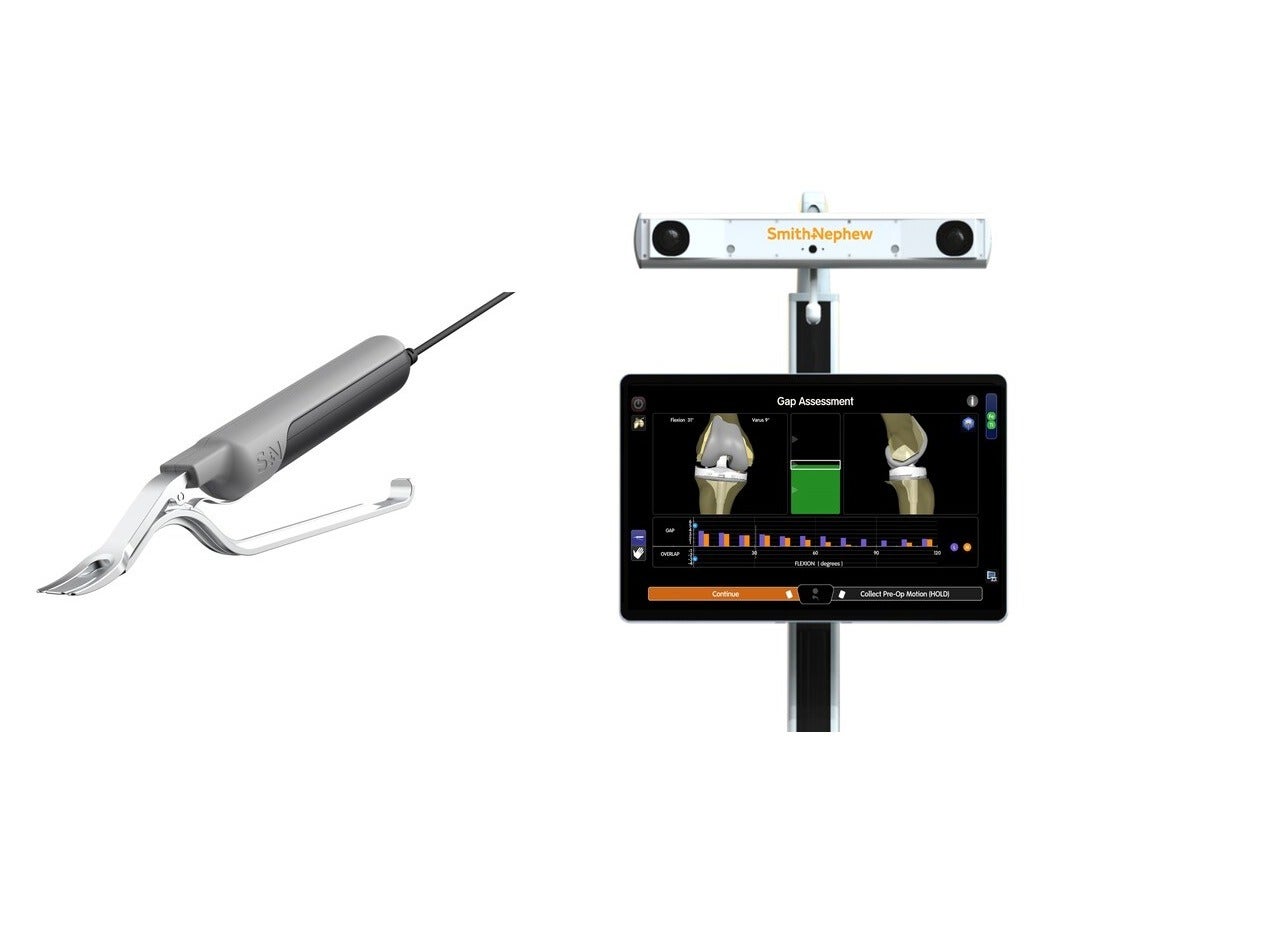
British medical technology company Smith+Nephew has rolled out its new handheld device, CORI Digital Tensioner, to support robotically enabled total knee arthroplasty.
The CORI Digital Tensioner is a differentiated technology that allows surgeons to measure the ligament tension in a knee before cutting the bone in a total knee arthroplasty procedure.
It enables surgeons to quantify joint laxity in the native knee and achieve an optimal ligament tensioning force to help reduce variability in balancing the knee during surgery.
The device will make surgical planning more objective compared to other commercially available alternatives, said the British medical technology company.
CORI Digital Tensioner produces a quantifiable force to distract the knee joint, apply constant tension to the ligaments, and provide objective gap data for procedure planning and execution.
In a small clinical case series, the CORI Digital Tensioner reduced variability of tensioning by 64% when compared to a manual technique said Smith+Nephew.
Hospital for Special Surgery in New York knee service chief and orthopaedic surgeon Steven Haas said: “I’ve never seen anything like the digital tensioner before. You try to teach how much force to apply, but it varies by the surgeon and from one case to another.
“The CORI Digital Tensioner goes into the knee, you see a force or load being applied, and the gap it created. This technology is something I’ve wanted for the last twenty years.”
According to the company, its CORI Digital Tensioner is the first and only ligament tensioning device to evaluate the joint laxity in the native knee before performing bony resection.
It is a true tensioning device that advances robotic-assisted surgery procedures and uses a software interface to help surgeons select their choice of target force value and help solve challenges.
Also, the device automatically collects gap data at a specified force through the full range of movement, said the medical device company.
The first commercial surgical procedure using the CORI Digital Tensioner was performed by HONORHEALTH Medical Group orthopaedic specialist Bertrand Kaper.
Kaper said: “The integration of this dedicated soft tissue tensioning device brings a new realm of objective data to the technique of knee replacement.
“The surgeon is now able to collect joint laxity data, in a proactive manner, to assist with the visualisation, planning and execution of the patient’s surgery in real-time.
“It’s unlike any other tool we’ve historically had available and will be a powerful addition to the robotic-assisted knee replacement technology that the CORI platform currently offers.”






